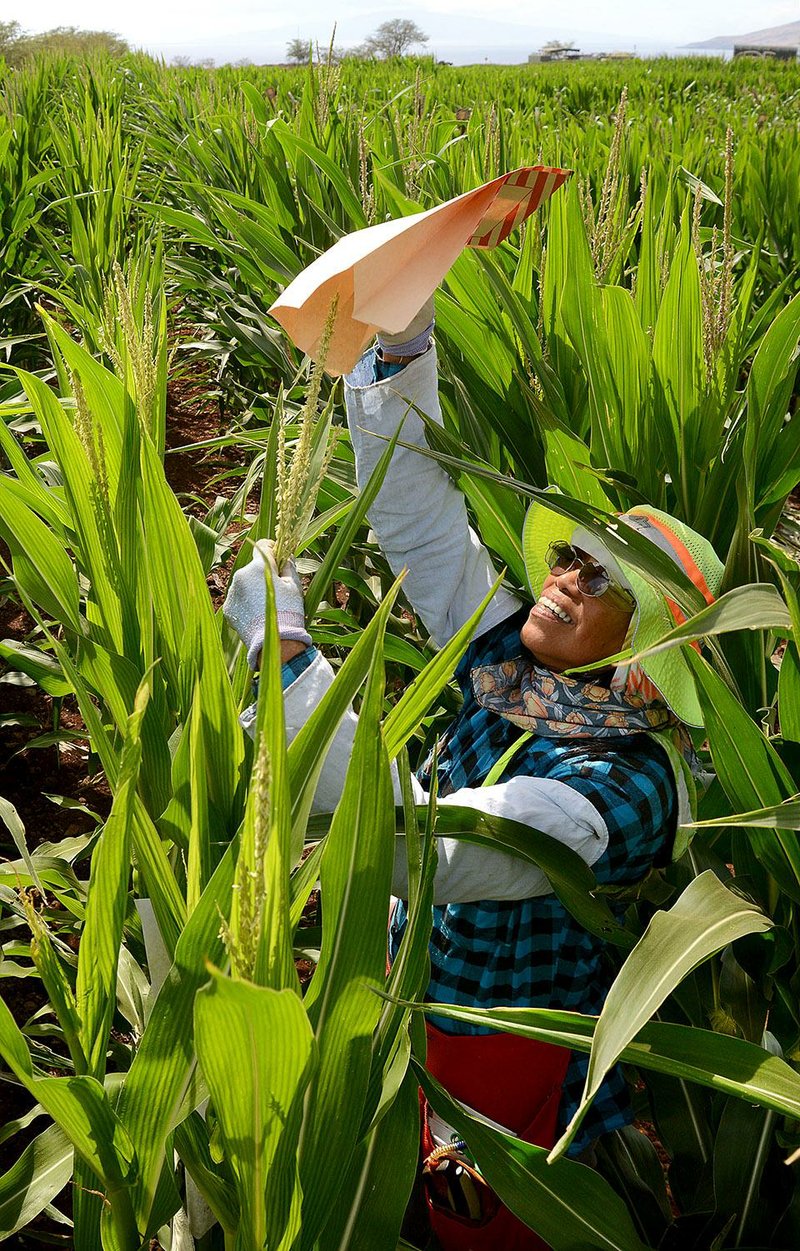HONOLULU -- Dozens of Maui mothers are going door-to-door to urge voters to back a ban on the cultivation of genetically engineered crops because they think they are unsafe.
A group backed by companies growing the crops counters with ads playing heavily on the airwaves that urge rejection of what they are calling the "farming ban."
The dueling campaigns over a Nov. 4 ballot measure that would prohibit the growing of genetically modified organisms until studies show they're safe isn't just a local issue in a county of only 160,000 residents in the middle of the Pacific Ocean.
Experts say the ban's effects could ripple across the nation because some of the world's largest seed corn producers research and develop new varieties of genetically engineered seeds at their farms in Maui County, which includes some small neighboring islands.
Kendall Lamkey, chairman of the agronomy department at Iowa State University, said the initiative, if passed, could potentially make seed development more expensive for Monsanto Co. and a Dow Chemical Co. subsidiary, Dow AgroSciences.
"It's not going to stop it, but it will slow it down," Lamkey said. The companies will "adapt. I mean, there will probably be workarounds for this that may or may not cost more money and may or may not raise the cost of goods to our farmers."
About 90 percent of all corn grown in the U.S. is genetically engineered and has been developed partially at farms in Hawaii.
There has been little scientific evidence showing foods derived from genetically modified organisms are less safe than their conventional counterparts. But fears persist in Hawaii and elsewhere.
In the islands, those concerns are compounded by worries about the companies' use of pesticides.
What's at stake is whether corporations can "come in here and run our island as a chemical experiment where they ship out the profits and we have to deal with the pollutants," said Mark Sheehan, a leader of the group behind the ban on genetically modified organisms.
Monsanto has farms on Maui and Molokai islands. Dow AgroSciences has one on Molokai through its unit, Mycogen Seeds.
Passions are strong on both sides. Activists squabbled and taunted each other this month at the Maui Fair, normally a sleepy event featuring carnival rides and livestock exhibitions. Fair organizers told The Maui News that activists affixed bumper stickers to fair banners and signs.
Sheehan said his group, the Sustainable Hawaiian Agriculture for the Keiki and the Aina Movement or SHAKA Movement, has been holding community meetings. About 30 mothers have also been going to people's homes in the beach resort town of Kihei, Sheehan said.
"I think about 600 doors a day, they're knocking on. These are not paid employees," he said.
A Section on 10/26/2014
